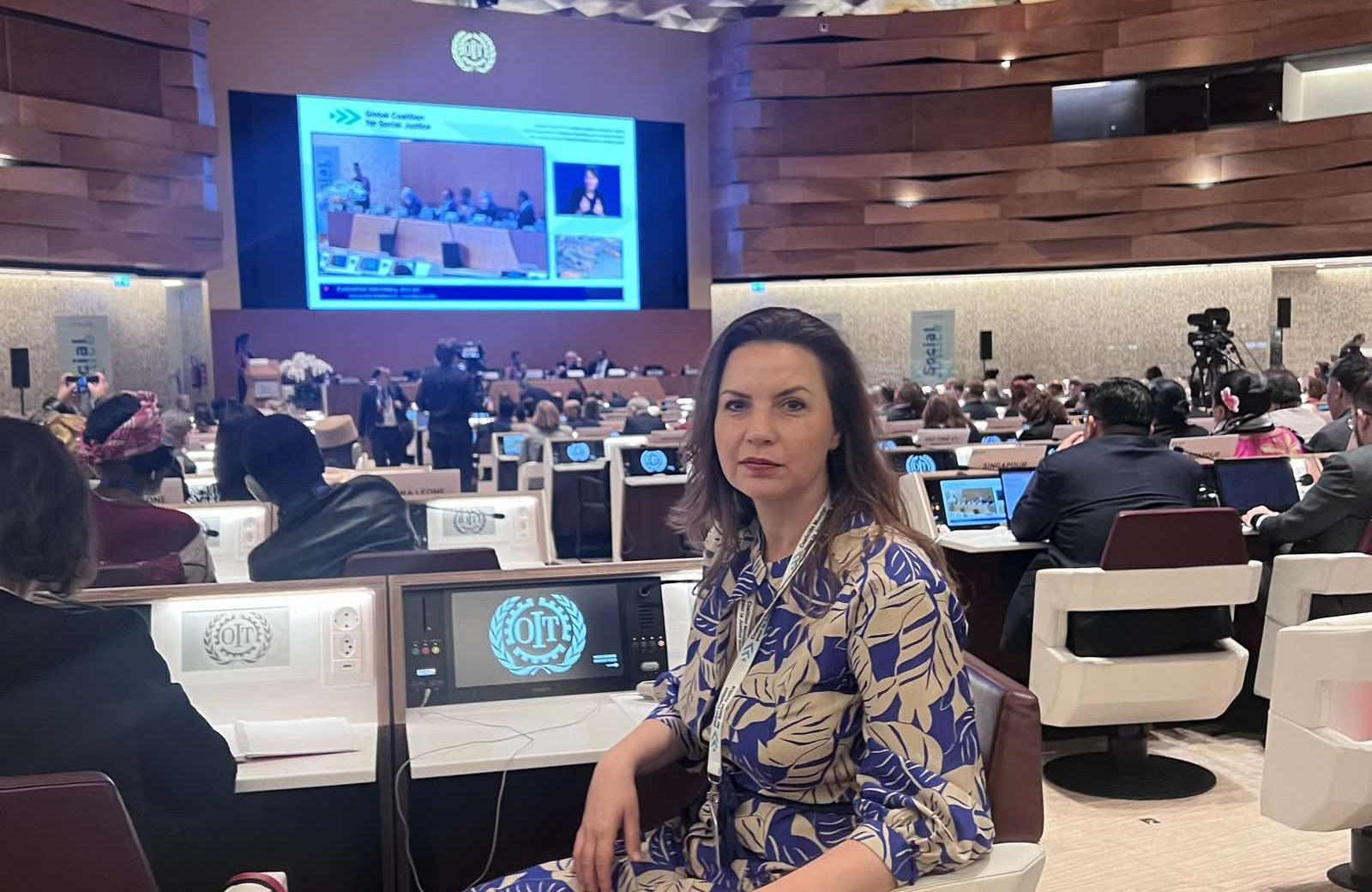The forum was also attended by Maria Mincheva - Vice President of BIA
BIA Vice President Maria Mincheva participates in the Global Coalition Forum taking place today (13 June 2024) in Geneva, Switzerland, during the 112th session of the International Labour Conference. The Forum is the inaugural one for the Global Coalition for Social Justice, which brings together representatives of governments, employers' and trade unions' organisations, international institutions, businesses, NGOs and academic institutions.
The agenda of the inaugural forum is structured as a continuation of the ongoing collaborative efforts initiated by the thematic development partners of the Coalition. The plenary will highlight concrete actions taken by partners to promote social justice, in line with the Coalition's thematic areas. It will include three thematic dialogues on:
- Building the resilience of societies;
- Improving coherence between economic and social policies and
- Promote social dialogue for shared prosperity.
The plenary meeting is held simultaneously in two rooms of the Palais des Nations and is broadcast live. In addition to the plenary session, there will be opportunities for Coalition partners to engage and network, such as a "partner zone" for interactive exchanges on thematic areas and an "engagement zone" for interviews and social media interactions.
The Global Coalition for Social Justice is an initiative of ILO Director-General Houngbo and was shaped and developed in close collaboration with ILO tripartite members and endorsed by the ILO Governing Body in November 2023. The establishment of the coalition was welcomed by a large number of Heads of State and Government, Ministers and other world leaders, including the UN Secretary-General. The Coalitions' scope of work is enshrined in key ILO founding texts spanning a century that highlight the transformative power of social justice in promoting cohesive and productive societies, reducing poverty, hunger, inequalities and social tensions.
The Global Coalition for Social Justice is a groundbreaking initiative that aims to strengthen collective efforts to urgently address social justice deficits and accelerate the implementation of the 2030 Agenda for Sustainable Development, the Sustainable Development Goals and the Decent Work Agenda.
Indeed, despite global, regional and national efforts, progress towards the Goals is off track due to economic and other shocks, such as the COVID-19 pandemic and the rising cost of living, as well as environmental, technological and demographic transformations. Such immediate and long-term forces exacerbate poverty, inequalities and injustices, decent work deficits and social cleavages in many countries, reinforce distrust in institutions and limit access to opportunities such as education, finance and freely chosen work. Unless addressed urgently, such challenges are likely to intensify in the coming years. As called for by the Secretary-General of the United Nations in Our Common Agenda, the international community urgently needs to coordinate and support national responses to these challenges. The Future Summit, planned for September 2024, will lay the groundwork for more effective global cooperation to address today's challenges and future threats. A human-centred and rights-based approach is needed to address short-term crises and long-term trends. This approach must give equal priority to the economic, social and environmental dimensions of sustainability.
The Coalition comes in response to these challenges. It creates a collaborative space for action, dialogue and advocacy in which partners shape individual and collective opportunities for concrete action and tangible results. By leveraging collaboration among partners to expand on the unique strengths of each participant, it seeks to address social justice challenges in a holistic and coherent way. The Coalition's means of intervention include actions to: elevate the place of social justice on global, regional, and national agendas through enhanced advocacy and promotion efforts; promote policy coherence and collaborative action; and generate and disseminate knowledge.
In this way, the coalition serves as a platform for generating increased political commitment and promoting concrete actions in support of national priorities. The ultimate goal is to achieve a greater balance between the economic, social and environmental dimensions of sustainable development, to significantly reduce inequalities and poverty, and to meet basic needs and create opportunities for people around the world.
To date, the Coalition counts over 250 partners - governments, employers' organizations, workers' organizations, international and regional organizations, international financial institutions, international NGOs, business and academia - committed to advancing social justice by joining forces and scaling up their efforts.






